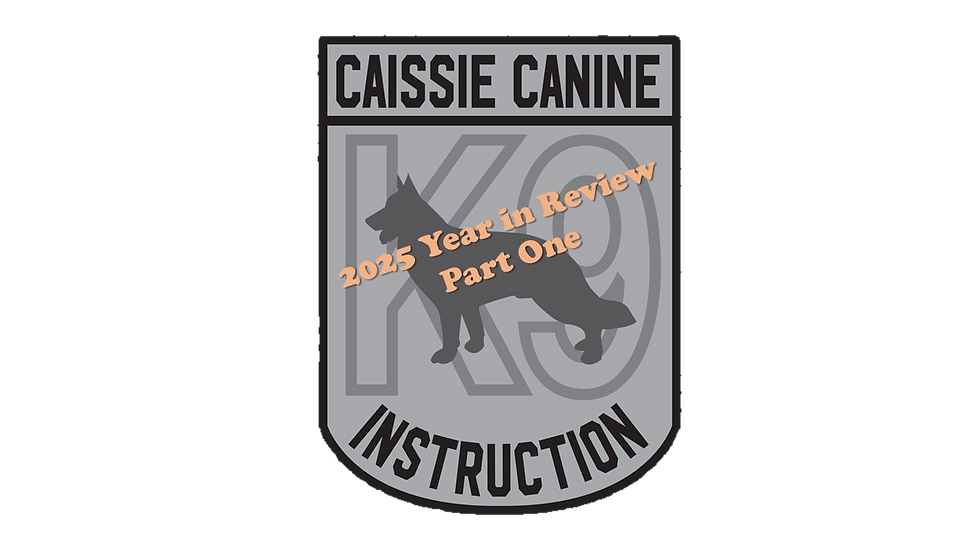CAISSIE CANINE INSTRUCTION: Therapy dogs
- caissiecanineinstr

- Mar 15, 2021
- 2 min read

Good morning and welcome Doggie Dialogue:
Thank you to all our clients for the past and current pictures of their beloved dogs. All the dogs seen here below are students or graduates of our training programs.
Terri and Rob, rescued Indica from a reserve in Manitoba.


Charlee, also a rescue, have been brought into their home to add to their canine pack.
Having an active lifestyle and now 4 dogs (yes 4 dogs), their goal was to create peace and harmony into their lives and their canine pack. They are doing great!!!
Some clients have participated in our Caissie Canine Therapy and/or Service Dog training program. With this type of certification we would recommend which dog/breed would best suit our clients needs after a consultation to review the clients mental and/or physical overall health. We will ensure we have the “right” dog that meets the needs of the client.
Therapy dogs are NOT service dogs.

Therapy dogs are required to have a calm temperament, love people, be comfortable being petted, and unfazed by sudden movements. Therapy dogs can also be therapeutic for their owners to help ease anxiety, depression, and combat loneliness. Some therapy dogs and their owners can also work as a team to volunteer in schools, nursing homes, hospitals, and even at workplaces.

Therapy dogs are trained to be in new environments and comfortable to interact with different people of the ages.
Service dogs individually trained to work with people with disabilities.

For example service dogs can be guide dogs to help assist blind, partially blind or vision impaired to help navigate around obstacles. Hearing alert dogs help to assist people with hearing loss to alert owners to common sounds like smoke alarms, telephones, babies crying, and will lead their handlers towards the source of the sound.
Autism assistance dogs are trained to help regulate the walking speed of an adult or child with autism. Sometimes a child harness will be attached to the service dog to prevent bolting.
Some service dogs (like Zoya, seen above) can recognize seizures and behaviours or overstimulation in people with disabilities. Service dogs can be trained to pick up dropped items, retrieve medication, or water bottles. Some service dogs are even trained to help pull blankets up/over their owners to keep them warm and comfortable.
When you are certified through Caissie Canine Instruction you will receive a therapy dog certificate, I.D. card and a working therapy dog harness.




Comments